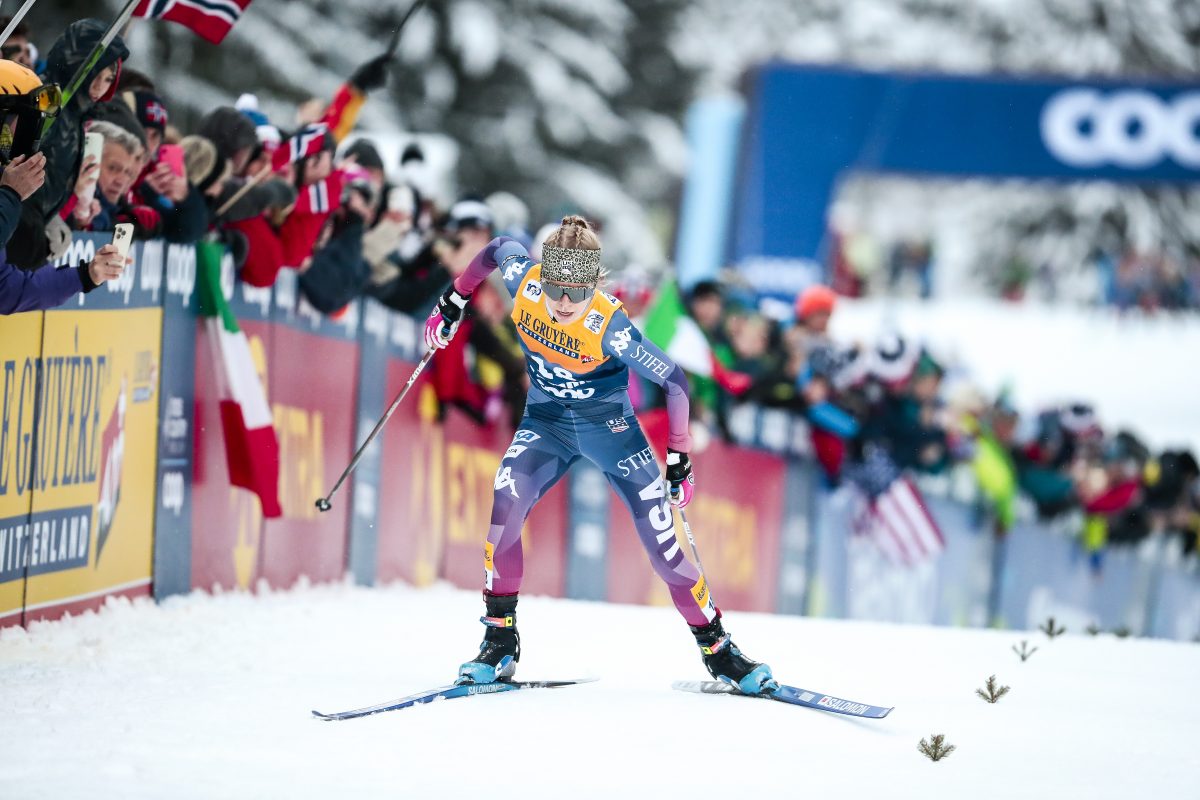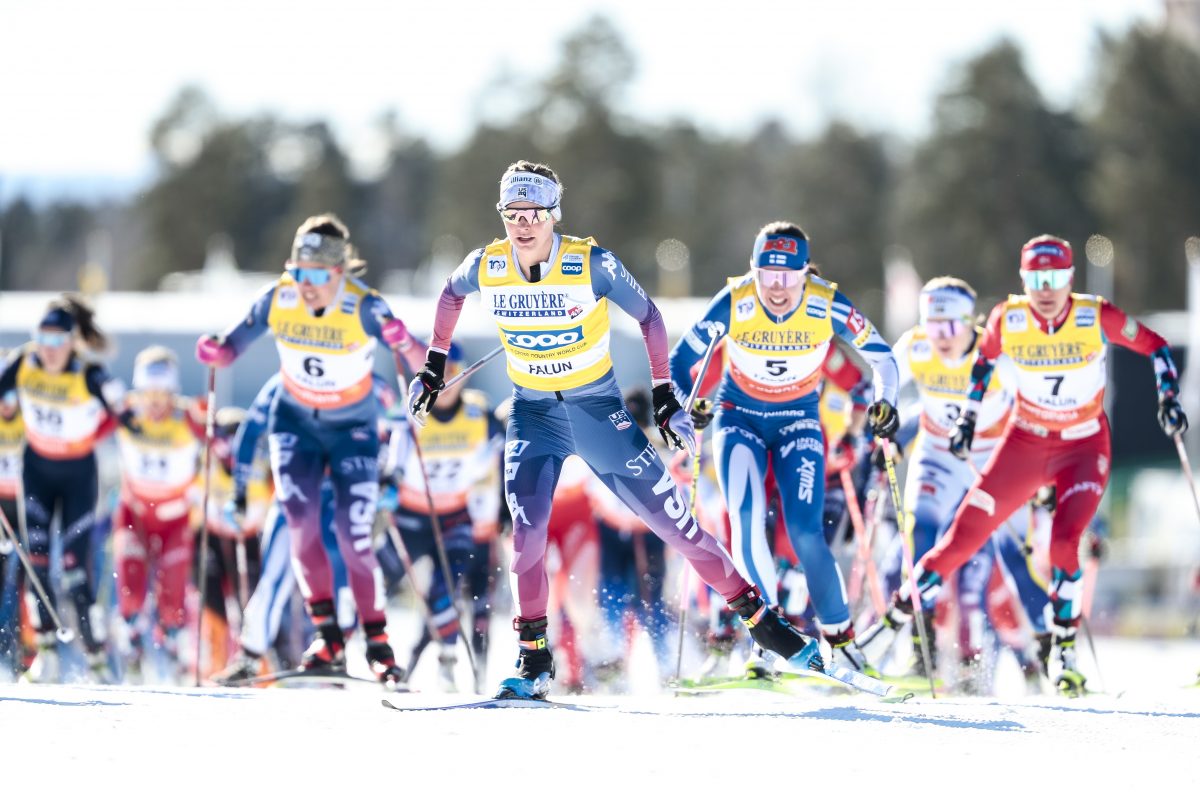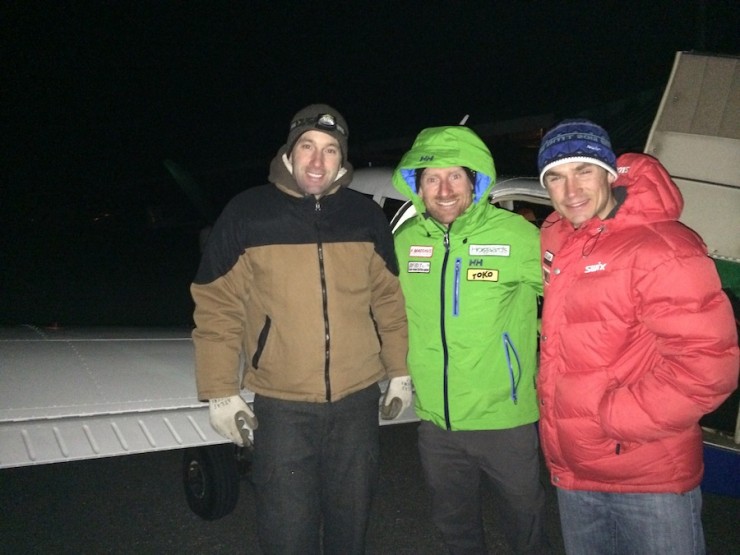
Editor’s Note: This is the first of a two-part story detailing the recent transcontinental journey of Brian Gregg and Matt Liebsch, which started with a two-day drive from Montana to British Columbia and a forgotten passport. Once in Canada, some quality time in Garrott Kuzzy’s former bed preceded a last-minute decision that would bring the friends 600-plus miles back to Montana — all for the sake of racing in hopes of qualifying for the upcoming Olympics.
***
The idea popped into Brian Gregg’s psyche during the nearly 13-hour drive north to Vernon, British Columbia.
The 29-year-old Washington native had just set himself up pretty nicely in the first domestic races of the season in West Yellowstone, Mont., placing second (and first American) in the SuperTour 15-kilometer freestyle, and 16th in the freestyle sprint – a nice bonus for the distance skier who comprises half of Team Gregg. (His wife, Caitlin, being the other half.)
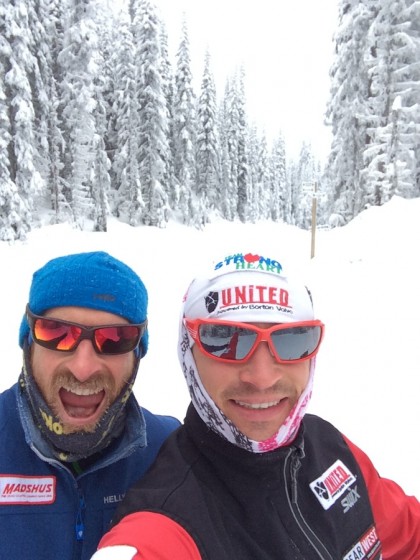
He and his buddy Matt Liebsch (XC United/Team StrongHeart) had decided a while back that they’d pack up Sunday, Dec. 1, after the races drive north across the border for the first Canadian NorAms in Sovereign Lake. There was a 15 k freestyle race they’d set their sights on there, and both seeking an appealing International Ski Federation (FIS) profile in the leadup to the 2014 Winter Olympics – now just 55 days away – they were hunting for lower points.
Neither necessarily needed a win, just a top finish within close proximity to the winner to do the job. Both Gregg and Liebsch, 30, are trying to qualify for their first Olympics. Neither are part of the U.S. national team so they’ve narrowed down a couple ways to go about achieving their dream: either lead the SuperTour to earn World Cup starts in January, ski fast enough over the next two months to be picked by coaches’ discretion, or be one of the top-ranked U.S. skiers on the FIS distance or sprint lists should the decision come down to that.
For Gregg, the opportunity to finish the first SuperTour period as the overall leader was too good to pass up. With a strong standing coming out of West Yellowstone, he started to mull the possibility of driving back to Montana for the second set of races in Bozeman one weekend later.
First, he and Liebsch would have to take care of business in Sovereign Lake on Dec. 7, but they could theoretically trek 700-some-odd miles back to Bozeman for the distance race there the next day. A schedule change that switched the classic sprint to Saturday and 10/15 k classic mass starts to Sunday in Bozeman suddenly made it all possible. Liebsch wasn’t sure and the two mostly joked about it on the way up.
Between laughs, Gregg was trying to look up border-patrol phone numbers on his phone. The two had stayed overnight at hotel in Post Falls, Idaho, when it occurred to Gregg that he didn’t have his passport.
He called Caitlin to see if she had it. “She’s like, ‘Yeah, it’s right here,’ ” Gregg recalled in a phone interview on Thursday from Rossland, B.C., where he and Caitlin were gearing up for the second set of NorAms. “Not good.”
Gregg spent the next four hours of the drive trying to get in touch with a Canadian agent at the Osoyoos crossing. He got through to U.S. officials in Oroville, Wash., just across the border, who questioned how he got their number. The Canadians must’ve published it, they reasoned, and in turn gave Gregg the Canadian contact info.
“They were like, ‘You really screwed up, didn’t you?’ ” Gregg said. “But if you can prove that you’re a U.S. citizen … it’s up to the discretion of the border-crossing officer.”
Still hopeful and en route, Gregg hung up and called the Canadians. Also surprised with his ability to call directly, the Osoyoos officer recommended he keep driving. Gregg had a copy of his passport, and Caitlin texted him an enlarged picture of it to show the agent.
“The guy was like, ‘I cant tell you that you will or won’t get in, but I would say I’d keep driving this direction if I were you,’ ” Liebsch said on the phone Thursday from his home in the Twin Cities. “He was totally fine with it. The only thing he was kind of irritated about it is we had [Brian’s] brother’s Mazda … and we didn’t have a note authorizing we could use it. But he let us through pretty quickly.”
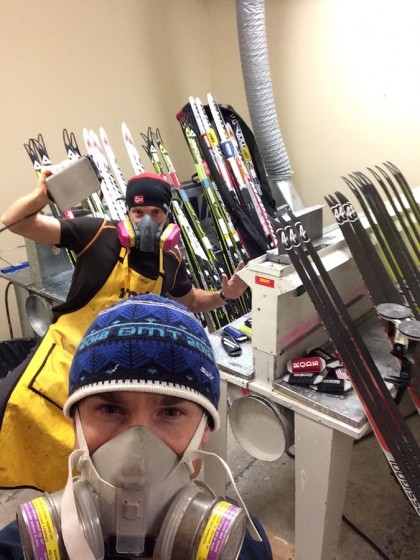
“[Brian’s] just cagey that way,” Liebsch added. “He makes stuff happen.”
On the afternoon of Dec. 2, the two arrived at their condo rental in Silver Star – the same one Gregg and Liebsch stayed in while racing for Central Cross Country (CXC) in 2009 and trying to qualify for the 2010 Olympics.
Four nights later, Gregg’s mom and sister, Tara, made the trip up and prepared their pre-race dinner: quinoa and wild Alaska salmon – Gregg’s favorite.
Gregg slept in the same room Garrott Kuzzy dwelled in the night before winning that 2009 U.S. Olympics trial in Sovereign to help him qualify for the 2010 Games. Liebsch also landed in the top four in that race, but was the fourth man out when it came to qualifying for the Olympics.
“This time around, I’m gonna make sure I have the points I need,” Liebsch said. “I want to be skiing really fast, too, to show that I need to be in Russia and some of those races.”
Last Saturday’s bitter temperatures of -20 degrees Celsius (-4 Fahrenheit) delayed the start of the Sovereign Lake distance race, which was fine for Gregg and Liebsch who prepared their own skis with the help of Andrew “Sven” Kroese, who flew up from the Midwest-based Gear West, and Callaghan Valley Training Centre coaches Chris Manhard and Graham Maclean.
Before the start, Gregg asked Liebsch if he wanted to make things interesting. Reunited with his passport thanks to Team Dominica’s Angelica Morrone Di Silvestri, who brought it up from West Yellowstone, Gregg had spent some time earlier in the week researching the cost of a chartered flight to Bozeman. He knew a guy: Monte Catlin, a Seattle-based firefighter who doubled as a pilot, from Gregg’s senior prom when Catlin took him and “a couple buddies” for an hour flight for “$80 or $90 bucks.”
When he contacted Catlin about flying him and some ski pals to Bozeman, Catlin said he could fly four people for a total of $2,100 dollars. Gregg thought it was a great idea, but he and Liebsch couldn’t round up two others to split the cost. Catlin told Gregg to call him if anything changed; he could fly them last-minute.
“ ‘If we go one-two, let’s buy the flight,’ ” Gregg said to Liebsch.
Liebsch laughed and agreed, not entirely convinced it would happen even if they placed first and second.
“Brian was spending more effort on it than I was,” he said. “I was like, ‘I’m just gonna ski here, race then have a nice Bugaboos coffee and ski on Sunday morning.’ ”
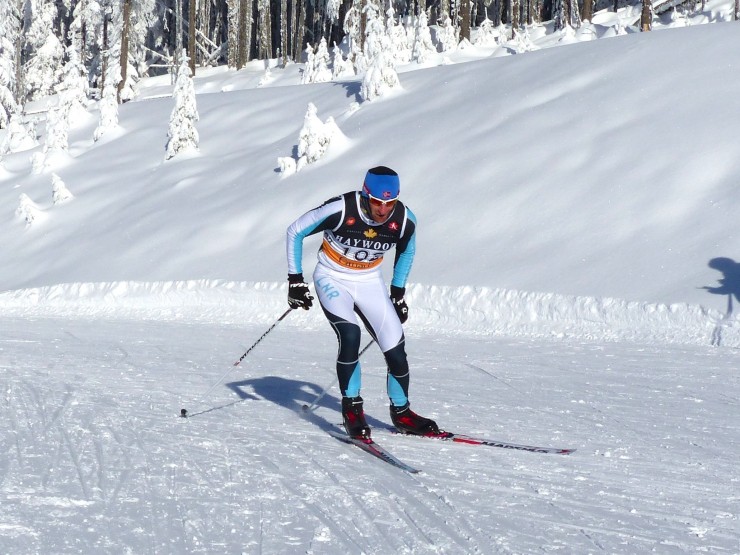
As the three-lap 15 k played out, it became evident that they were going to have to pay up. Gregg won the race, Liebsch finished 3.3 seconds back in second, and before thawing out, they were off in a mini van with Tara Gregg driving them 2 1/2 hours south across the border.
Liebsch had frozen his left cornea in the race, a problem he’d run into before at the American Birkebeiner in Wisconsin.
“People give me a hard time for wearing that big [visor],” Liebsch said. “[But] I got frozen up really good there … I lost my feet after the first lap, hands second lap, then my face went, my face started to freeze.”
With the women starting after the men, Liebsch watched as he came through the lap lane and one female headed out in the same suit as him. “[I] was having an out of body experience, like, ‘Wait is that me? I’m going really slow.’ ”
He came back to his senses on the way back to Osoyoos, making it across the border to a bombardment of congratulatory text messages. The two had advertised their journey on a fundraising website called Fundly, with the slogan: “Help Brian & Matt Get To The Start Line Tomorrow!”
As of Friday, they had raised $2,030 of their $2,100-dollar goal.
But right then and there, Liebsch was trying to direct them to the tiny airport where Catlin was waiting with his six-seater plane. Unable to manage the messages and turn-by-turn directions at the same time, they missed the turn. About 20 minutes later, Tara drove the mini van onto the tarmac and bid the skiers adieu as they hopped on.
“I don’t think I could fly commercially again,” Liebsch said. “Two minutes later, we’re off.”
Stay tuned for Part II…
Alex Kochon
Alex Kochon (alexkochon@gmail.com) is a former FasterSkier editor and roving reporter who never really lost touch with the nordic scene. A freelance writer, editor, and outdoor-loving mom of two, she lives in northeastern New York and enjoys adventuring in the Adirondacks. She shares her passion for sports and recreation as the co-founder of "Ride On! Mountain Bike Trail Guide" and a sales and content contributor at Curated.com. When she's not skiing or chasing her kids around, Alex assists authors as a production and marketing coordinator for iPub Global Connection.

